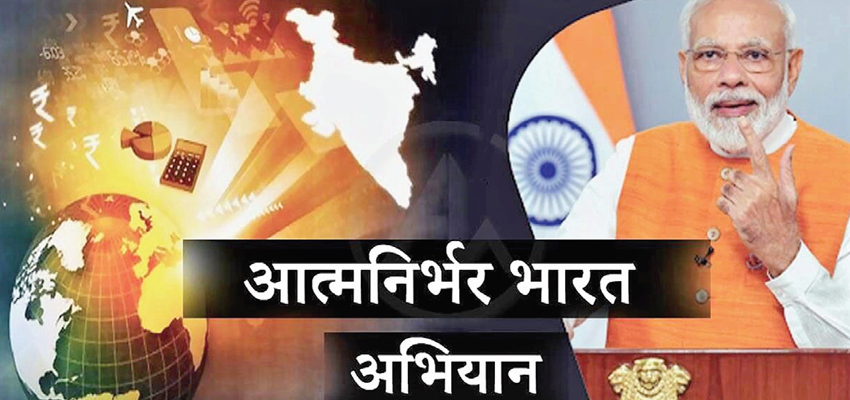Entrepreneurship is critical for the country where traditional job creation has run into many roadblocks with seven quarters of decline in a gross domestic product now further aggravated by the onset of COVID
The geopolitical conflicts and the ugly June murders of Indian army braves by the Chinese on the disputed Line of Control in Ladakh has had many fallouts, not least of which has been the banning of many Chinese apps and potentially a ban or at least restriction on Chinese imports. The clarion call of “Atmanirbhar” has also thrown up a possibility that a new wave of Indian entrepreneurship can be unleashed in the country.
The story of India and Indian innovation is in itself a challenge because this country has not truly made a mark in any form of product or business model innovation apart from propagating a curious and quite derogatory form of innovation called “jugaad” where entrepreneurs find workaround solutions to problems and somehow find rough and ready solutions. Personally, I find the celebration of these shortcuts quite repulsive and in some ways insulting to the real capability of the Indian mind and the vistas of the opportunity it could explore. If there is one standout example of successful innovation in this country, it is more in the form of process and services innovation in the India Information Technology Services and Business Process Management industry, led by pioneers like TCS and Infosys, who pioneered a global sourcing model for technology and process outsourcing and built a $160 bn industry with a dominant global market share in three decades. A former Prime Minister had coined a slogan “IT is India’s Tomorrow” and there is much more potential and promise to be converted to entrepreneurial performance in the years to come, not just in IT but also myriad new areas.
It was only after India finally shrugged away the British influences that large scale post-independence entrepreneurs started making their mark. The new generations of business families like the Tatas, Birlas, Goenkas, Mahindras and many others were all globally trained and imbued with professional concepts to build new age enterprises with a more intrapreneurial culture for professionals to be hired as CEOs and thrive. Two significant entrepreneurs worth mentioning from those times are Varghese Kurien, whose significant dairy development plan Operation Flood started a White Revolution in India and the company Amul still remains a major player in milk products and food. And Dhirubhai Ambani, whose Reliance group set many benchmarks for market dominance and shareholder value creation. Industry doyens in the Finance sector, Deepak Parekh and Uday Kotak are stellar examples of vision and values combined. And in the same vein, the technology entrepreneurs like Azim Premji, Shiv Nadar, Narayana Murthy showed the ability to combine cost leverage with highest standards of global quality to finally put India on the global map of entrepreneurship
The clarion call of “Atmanirbhar” has also thrown up a possibility that a new wave of Indian entrepreneurship can be unleashed in the country
In many ways, modern day entrepreneurs like Parikh, Kotak, Premji and Murthy represent the aspiration of entrepreneurs in India to build large national and global brands that can get the country back to the numero uno status in many sectors in the league of developed nations. Entrepreneurship is critical for the country where traditional job creation has run into many roadblocks with seven quarters of decline in a gross domestic product now further aggravated by the onset of COVID.
The absence of significant success stories and defensible startup value propositions beyond the oft-repeated PayTM, Flipkart and Byju’s examples has sent tremors through the market and questions are being raised about the sustainability of the entire startup movement. But there is no need for panic and post COVID, with the support of the Government through its Ministry of Skills and Entrepreneurship, a clinical assessment of the state of the startup nation and the opportunities opened up by the new mission of “atmanirbhar” or self-reliance can make entrepreneurs in manufacturing, financial services, technology and e-commerce blossom again.
What is also needed in India is for entrepreneurs who have established market connect and crossed the first hurdle of building a ten million dollar business entity to have the vision and success orientation to scale manifold in the coming years. 5F World, the group we founded in 2016 to invest in and mentor entrepreneurs applying digital technologies like block chain, AI and virtual reality to core national problems like supply chain, agriculture, manufacturing, skills and social sector has identified over five hundred firms just in the technology and digital space in India.
One area which we at 5F World are most excited about is social entrepreneurship. Entities we have invested in – Live History India Digital in the history and culture space, Studio Coppre which provides world-class designs and marketing ideas to copper artisans in the state of Maharashtra, Ahammune which does research and product creation in the skin disorder area, Farm Guru which aggregates the needs of small farmers and enables them to increase their predictability of output quantity and quality, the Lighthouse mission which seeks to power sustainable livelihoods in key smart cities of the country and Skills Alpha, an AI-enabled digital platform for personalized career planning and skills acquisition has demonstrated that with the right capital infusion and mentoring, entities with national social impact can truly be scaled without any government subsidy.
Does “Atmanirbhar” open up the floodgates of opportunity for all entrepreneurs to dominate the Indian market and take the world by storm? We are holding our breath and rolling up our sleeves. for the action.
